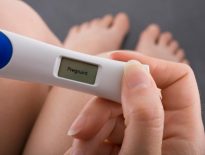-
Researchers say that a woman’s diet in weeks before conception is crucial
-
Can affect the chances of contracting diseases from flu to HIV and cancer
-
Study done in West Africa where diets vary drastically between seasons

It is often said that you are what you eat. But it seems that what your mother ate is also important.
Research has linked a womans diet before she becomes pregnant to the long-term health of her future child.
What she eats in the weeks leading up to conception could even affect her childs risk of contracting illnesses, ranging from flu and HIV to cancer.
The theory comes from researchers at the London School of Hygiene & Tropical Medicine, who say pre-conception diet is crucial.
Study author Professor Andrew Prentice said: The potential implications are enormous.
Colleague Dr Matt Silver said: Its about not just starting to behave yourself once you know you are pregnant.
They studied 120 women in rural West Africa, where diets change markedly between the wet and dry seasons. Half had conceived at the peak of the dry season and half at the height of the wet season. The researchers began by measuring the nutrients in the blood of the women shortly into their pregnancy.
Then, when their children were born, their DNA was analysed. The study did not look at the genetic code itself but at its epigenetic modifications, or marks, that affect how and when a gene becomes active. Under or over-active genes can cause problems.
For one gene, called VTRNA2-1, the marks are set in the first few days of life. It was extra-active in babies conceived in the dry season, when food was plentiful. In its highly-active state, the gene protects against cancer. When it is less active, as in babies conceived in the rainy season, the body finds it easier to ward off viruses, from flu and tummy bugs to HIV.
With infections a much bigger killer than cancer in Africa, the discovery, detailed in the journal Genome Biology, could help explain why Gambian children conceived in the dry season tend to die young.
Nutrients known to be involved in setting the marks are vitamin B2, methionine, dimethyl glycine and folic acid. Good sources include eggs, fish, beans, grains, liver and leafy green vegetables, Dr Silver said.
BEWARE OF EATING FOR TWO
Watching what you eat during pregnancy is far healthier than eating for two, say doctors.
The first major review of advice for three years suggests that women who actively try to reduce their weight gain have a better chance of having a good pregnancy and a healthy baby.
While all women put on weight during pregnancy, experts say that gaining too much increases the risk of developing high blood pressure and gestational diabetes. The child is also more likely to be born overweight and require a caesarean section.
The review, published yesterday by the influential Cochrane Library, incorporated evidence from 37 studies published since 2012.
It found that of those who regulated their diet during pregnancy, only 36 per cent put on excessive weight, compared to 45 per cent who took no action at all





